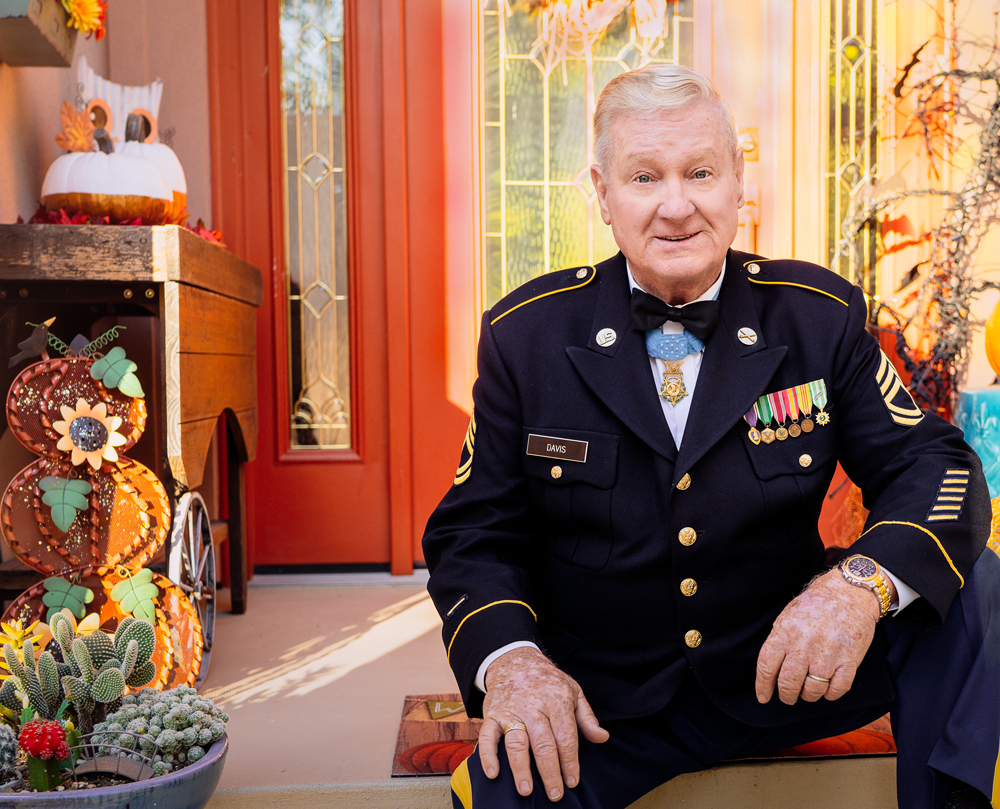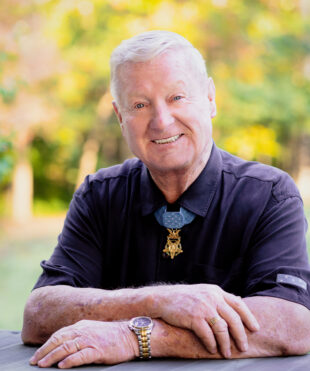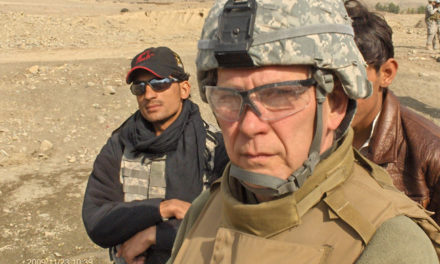
by CRAIG COLEY
Sammy Lee Davis enlisted in the Army during the Vietnam era while a senior at Mooresville High School, south of Indianapolis. He was sent into battle and had been in Vietnam just eight months when, on the night of November 18, 1967, his artillery regiment of 42 was overrun by about 1,500 North Vietnamese soldiers.
Fighting alone after the first wave of the attack—and despite crushed ribs, a traumatic brain injury, and wounds from shrapnel—Davis fought off hundreds of soldiers, then crossed a canal to rescue three injured infantrymen.
Although he would later be awarded the Medal of Honor for those actions, upon his return from Vietnam, while at the San Francisco airport on his way to Indianapolis, he was greeted by 20 protesters who smeared his face with feces and beat him with clubs while people stared. The entire episode was filmed by a television crew.

But what was more important, Davis says, is how the distinction of receiving the nation’s highest honor for valor in combat changed the course of his life, affording him opportunities to meet influential people and become one himself. He considers several U.S. presidents his friends and has been a motivational speaker for 40 years. He still travels 200 days a year for speaking engagements. On a personal level, the medal inspires him to live up to what it represents. “Because of the value I put on it, I’ve tried to be a better person,” he says.
Davis, 73, is one of 70 living recipients of the Medal of Honor and the only one who resides in Indiana. He and his wife, Dixie, live in Freedom. His son, J. Blue Davis, has a dental practice in Bloomington.
If you’ve seen Forrest Gump, you’ve seen Davis, as Tom Hanks’ head is superimposed on his as he receives the Medal of Honor from President Lyndon Johnson. There are other similarities between Davis and the fictional character. Gump had a shrimp boat; Davis had a commercial catfishing business. They were both shot in the “buttocks,” as Davis likes to mention when he speaks to schoolchildren. And they both quote their mothers: The title of Davis’ 2016 memoir, You Don’t Lose ’Til You Quit Trying (Dutton Caliber, 2016), is his mother’s saying.
The Medal of Honor is unique among military decorations in that it is worn from the neck by a ribbon. Davis passes his around when he talks at schools, and he estimates that 1.7 million children have held it. “I want them to feel part of it,” Davis says. “It belongs to them. I’m just the caretaker.”








wht was the cause of his death